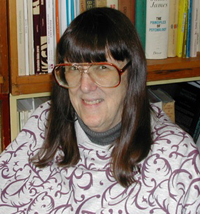Why We Fight

When allegations first arose in late 2005 that the CIA had been transporting terrorism suspects abroad so they could be tortured, there was little outcry among Americans. That muted response didn’t come as a shock to Kathleen Malley-Morrison, a College of Arts and Sciences professor of psychology, who has been studying family violence for years. After September 11, 2001, she began to examine attitudes about violence and war.
Working with a group of international graduate students, Malley-Morrison (SED’67,’70) devised a survey using what she called the Personal and Institutional Rights to Aggression Scale. It is based on responses, from strongly agree to strongly disagree, to statements such as: “War is always a bad thing,” “Orders of which you do not approve must be obeyed in time of war,” and “It is an honor to die for one’s country.” The group began by surveying small samples of people in America and other countries, including Saudi Arabia, Pakistan, Iran, and Malaysia, seeking to understand underlying attitudes toward war and aggression.
One key initial finding, which Malley-Morrison reported with coauthor Majed Ashy of Harvard earlier this year in the International Psychology Bulletin, is that willingness to tolerate the use of violence as a means to achieve a desired end is much greater among people removed from the actual scene of the violence. “People are so concerned with maintaining security, maintaining the wonderful life they have, they are willing to do really bad things to people in other parts of the world to make themselves feel more secure,” she says. “How do you take people who believe in ‘Do unto others as you would have them do unto you’ and get them to tolerate horrible things like torture and killing civilians?”
The mechanism that allows people to accept this behavior, Malley-Morrison says, is moral disengagement. “Americans say, ‘I’m really afraid of terrorists, I don’t want them coming here, and I think we have to do everything we can to keep them from coming here, and if that means torture, I guess we have to do it,’” she says. “They disengage by saying these people are less than human. They disconnect their own moral codes from what they tolerate being done. They make the immoral moral.”
One key finding in the survey indicates that women are much less likely to accept aggression and violence than are men. Malley-Morrison cites the case of Northern Ireland, where “women on both sides of the border played a very important role in stopping the conflict. In our culture and in most of the world, the more you let traditional women in, the stronger the force is going to be for conflict resolution and peace.”
At a recent peace conference she attended in Washington, D.C., a major theme was the feminization of politics as a tool of peacemaking. “In general,” she says, “the people who have traits like empathy, caring, and brotherhood have generally been women or great religious leaders.”
Malley-Morrison believes that education about the history and effects of war is probably the most effective way to overcome moral disengagement. She has had students in her classes who did not even know why the United States entered World War II, and others who admitted they knew little about war before taking her class on the psychology of war and peace.
Survey results — along with contributions from colleagues around the world using the same survey — will make up a four-volume set of books on perspectives on war and peace, to be published late next year in the Praeger International Security series. “My fantasy is that these books will be translated into many different languages, so people around the world can see that the things they think they have to fight for are much more the same than different,” Malley-Morrison says. “People want to live in peace and raise their children and feel secure.”
Taylor McNeil can be reached at tmcneil@bu.edu.